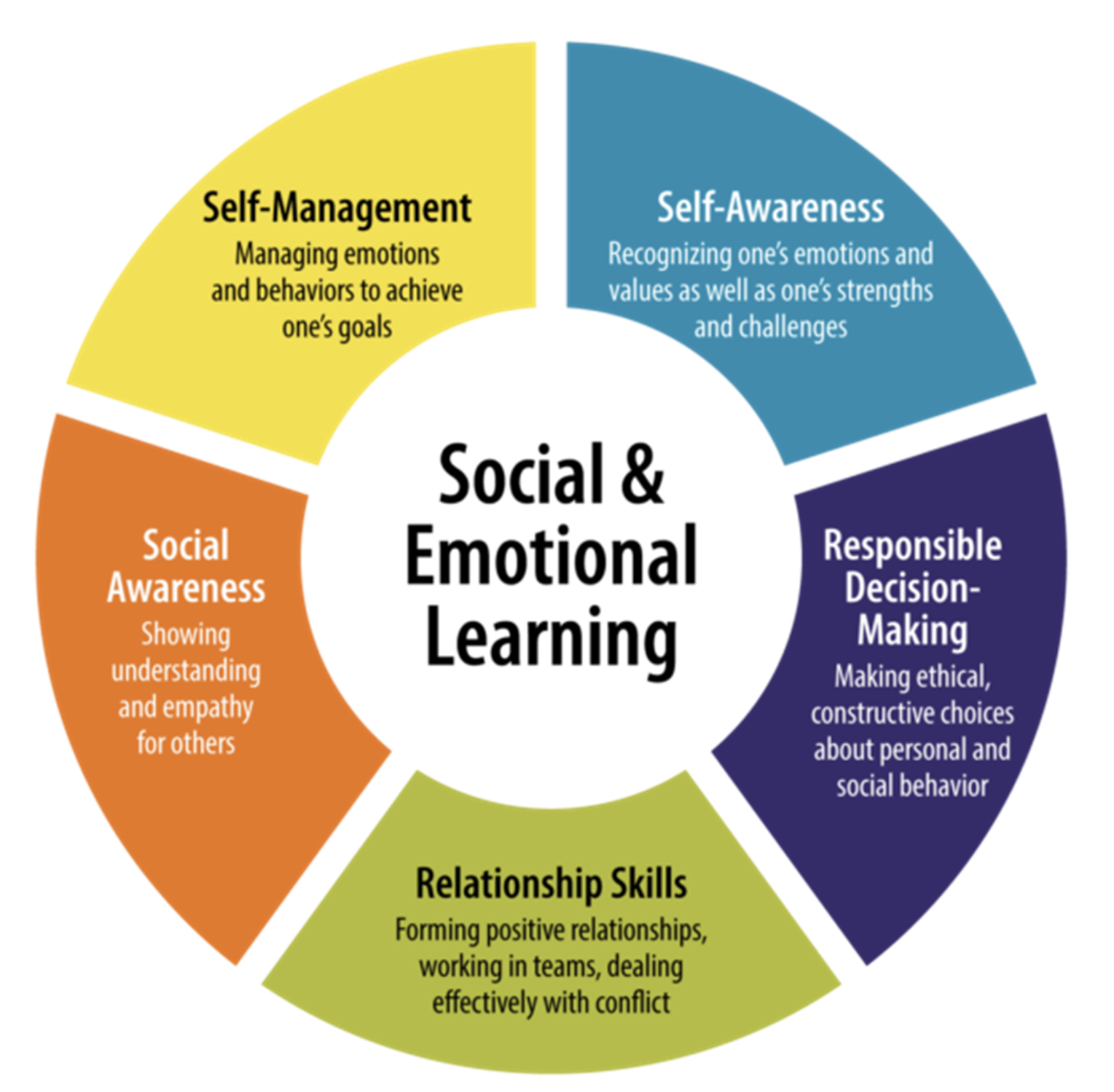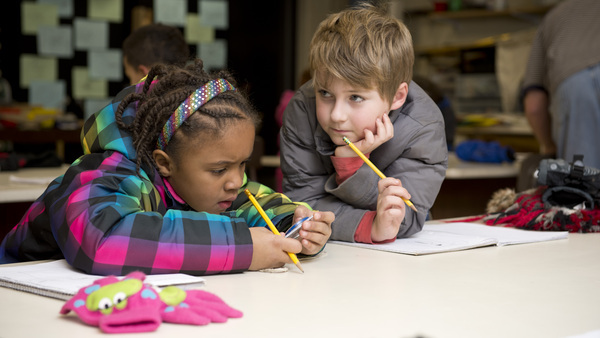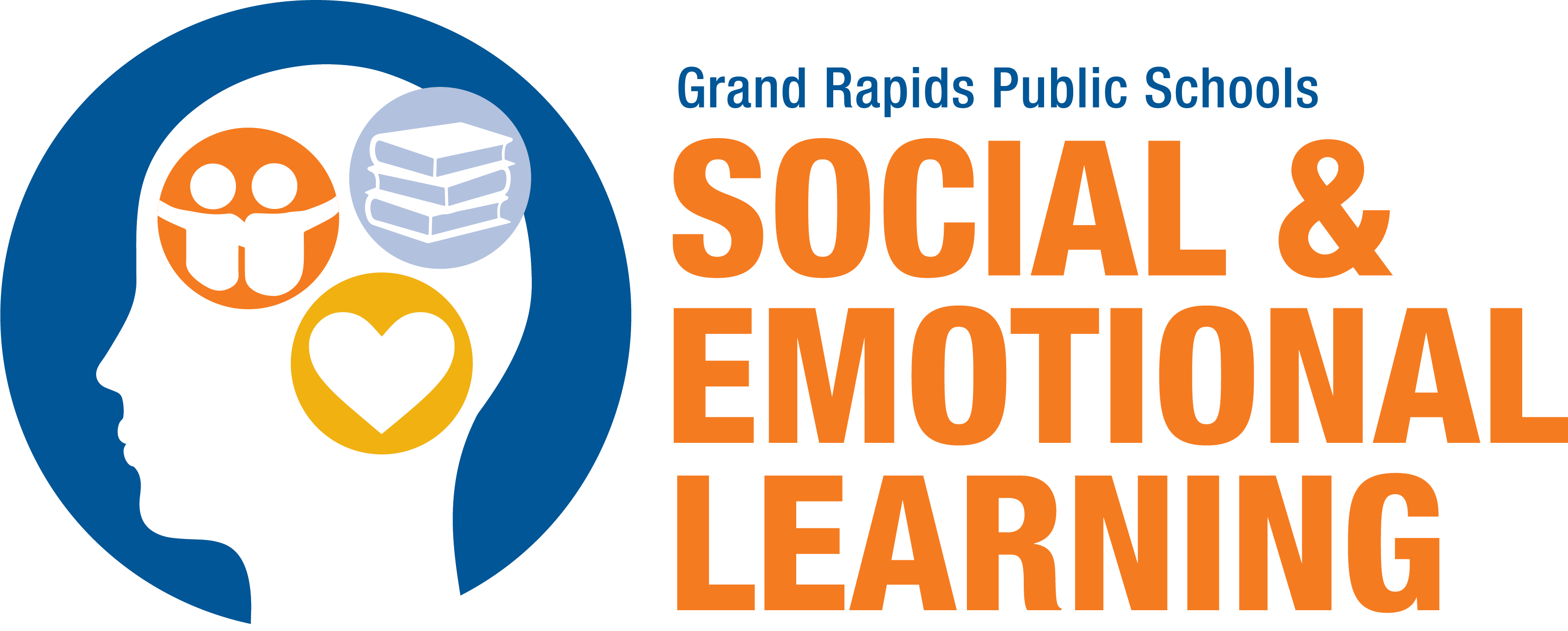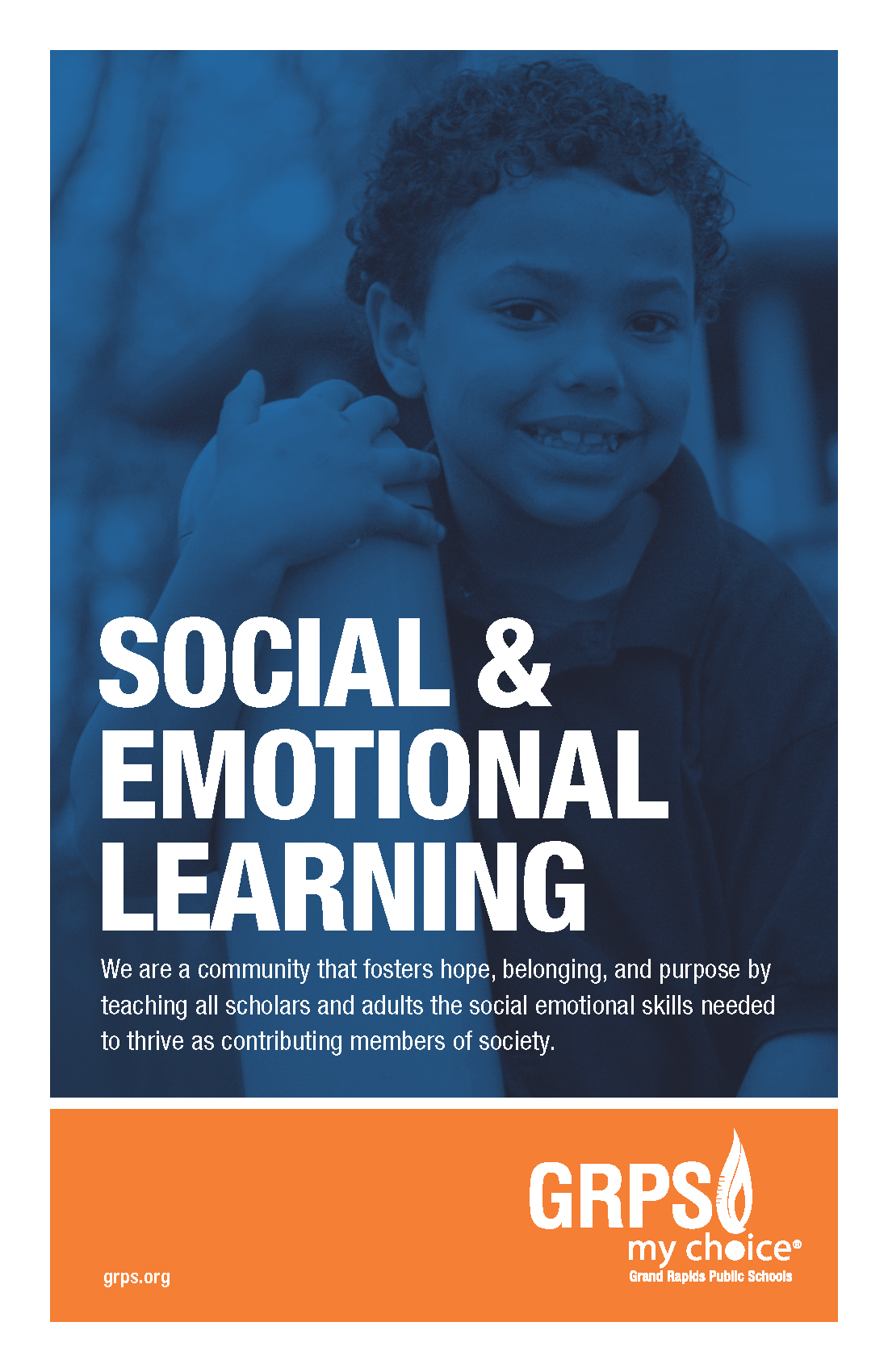Social & Emotional Learning (SEL)
We are a community that fosters hope, belonging, and purpose by teaching all scholars and adults the social emotional skills needed to thrive as contributing members of society.
What is Social & Emotional Learning?
Our community is dedicated to educating the whole child. This includes focusing on social and emotional learning (SEL) for scholars and adults by explicitly teaching and modeling attitudes and skills necessary to:
- Recognize and manage their emotions
- Demonstrate caring and concern for others
- Establish positive relationships
- Make responsible decisions
- Constructively handle challenging social situations
SEL Resources
At GRPS, we encourage social and emotional learning at all schools, which is why we have prepared resources that will help every scholar practice SEL .
Restorative Practices
Restorative Practices utilizes techniques and strategies to prevent relationship damaging incidents from happening and repairing them if they do. Implementation of Restorative Practices in schools help improve the five main social and emotional learning skills: Self-Awareness, Self-Management, Relationships Skills, Social Awareness and Responsible Decision Making. Together, Social and Emotional Learning and Restorative Practices are used to improve school climate by strengthening scholar-to-scholar, staff-to-staff and scholar-to-staff relationships.
- How to Implement Restorative Practices in Your School
- Restorative Practices at Home (External PDF)
- Community Building Questions for Scholars(PDF)
- 10 Powerful Community Building Ideas
- 180 Questions for Connecting Circles and Delightful Discussions (PDF)
- Common Circle Guideline/Expectations K-5 (PDF)
- Common Circle Guideline/Expectations 6-12 (PDF)
- A list of Feelings Words (PDF)
- I Statements or Affective Statements (PDF)
- Restorative Questions for Conflict Resolution
- Restorative Circles (Video)
- Community Building with Restorative Circles (Video)
- 6 Steps for Conflict Resolution (Video)
Positive Behaviors Interventions and Supports (PBIS)
PBIS is a process for creating safer and more effective schools. It is a systems approach to enhancing the capacity of schools to educate all children by developing research-based, school-wide, and classroom behavior support systems. The process focuses on improving a school’s ability to teach and support positive behavior for all students.
SEL and Belonging
Grand Rapids Public Schools understands that SEL is a powerful lever for building caring, just, unified, and healthy communities that enable all individuals to reach their full potential. Systemic SEL implementation both promotes and requires a scholar-centered learning environment in which all scholars and adults are respected, valued, and affirmed for their unique interests, abilities, social identities, cultural values, and backgrounds. By grounding SEL in a focus on belonging, Grand Rapids Public Schools can further promote the conditions that enable all scholars to build on their unique assets and abilities to be their best.
Three Signature Practices
The 3 Signature Practices is a tool to foster a supportive inclusive environment and promote SEL. This is one resource we can do to support SEL, "Right now!"
Shared Agreements
Creating shared agreements is a way to showcase student voice and as a class community reflecting on how students want to be treated, and how they plan to treat others.
Shared Agreement Example:
Essential Agreement
In this class we will:
- Be Kind.
- Treat others the way they want to be treated.
- Respect other's boundaries.
- Take responsibility for belongings and actions.
- Work as a team.
- If you see something, say something.
- Respect and listen at a level zero.
- Don't be afraid to ask for help.
- Persevere and try your best.
- S.O.A.R!!
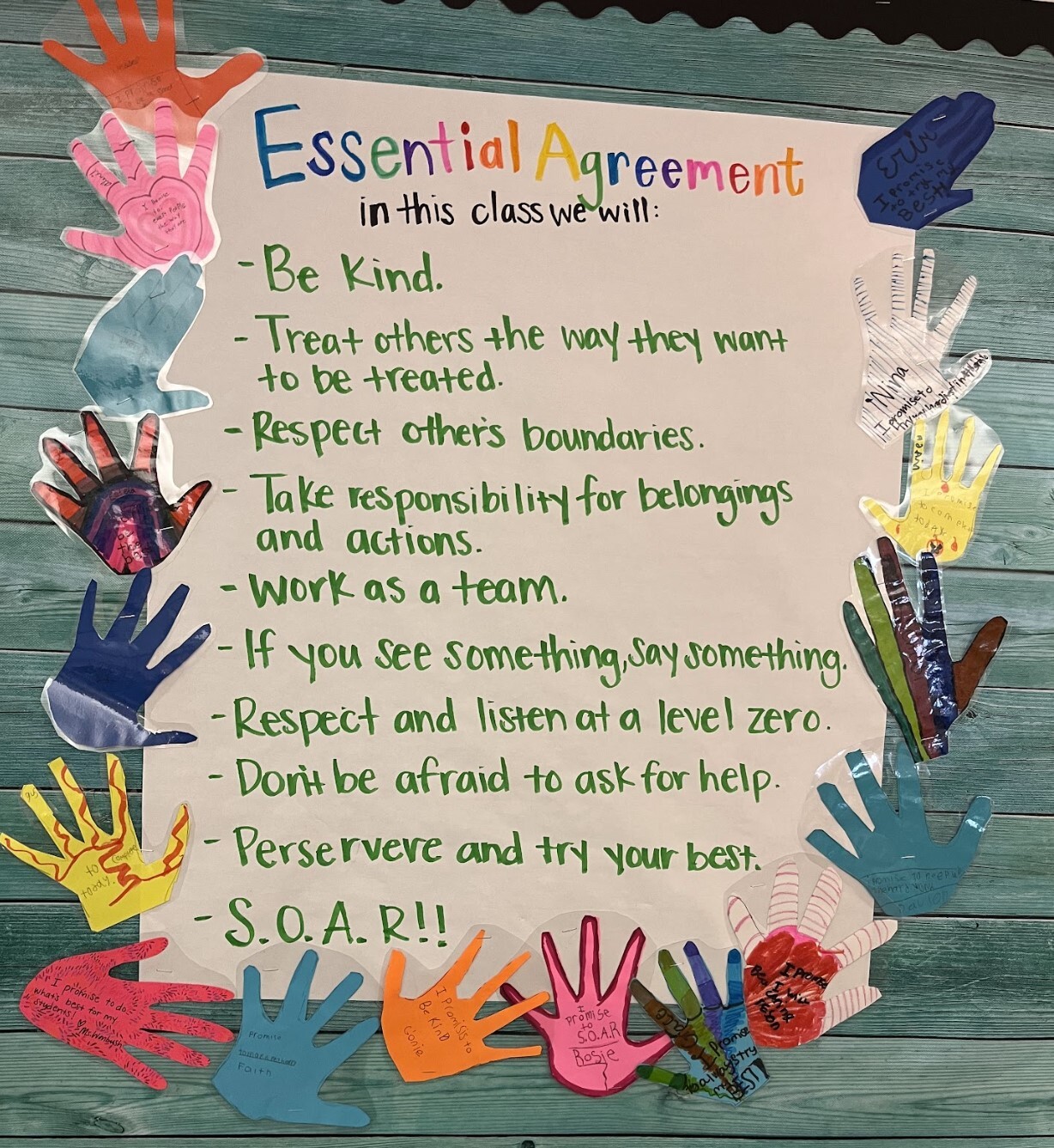
GRPS Connections to the CASEL Framework
The CASEL Framework
Social and emotional learning (SEL) is an integral part of education and human development. SEL is the process through which all young people and adults acquire and apply the knowledge, skills, and attitudes to develop healthy identities, manage emotions and achieve personal and collective goals, feel and show empathy for others, establish and maintain supportive relationships, and make responsible and caring decisions.
SEL advances scholar-centered education and excellence through authentic school-family-community partnerships to establish learning environments and experiences that feature trusting and collaborative relationships, rigorous and meaningful curriculum and instruction, and ongoing evaluation. SEL can help address various forms of academic barriers and empower young people and adults to co-create thriving schools and contribute to safe and healthy communities.
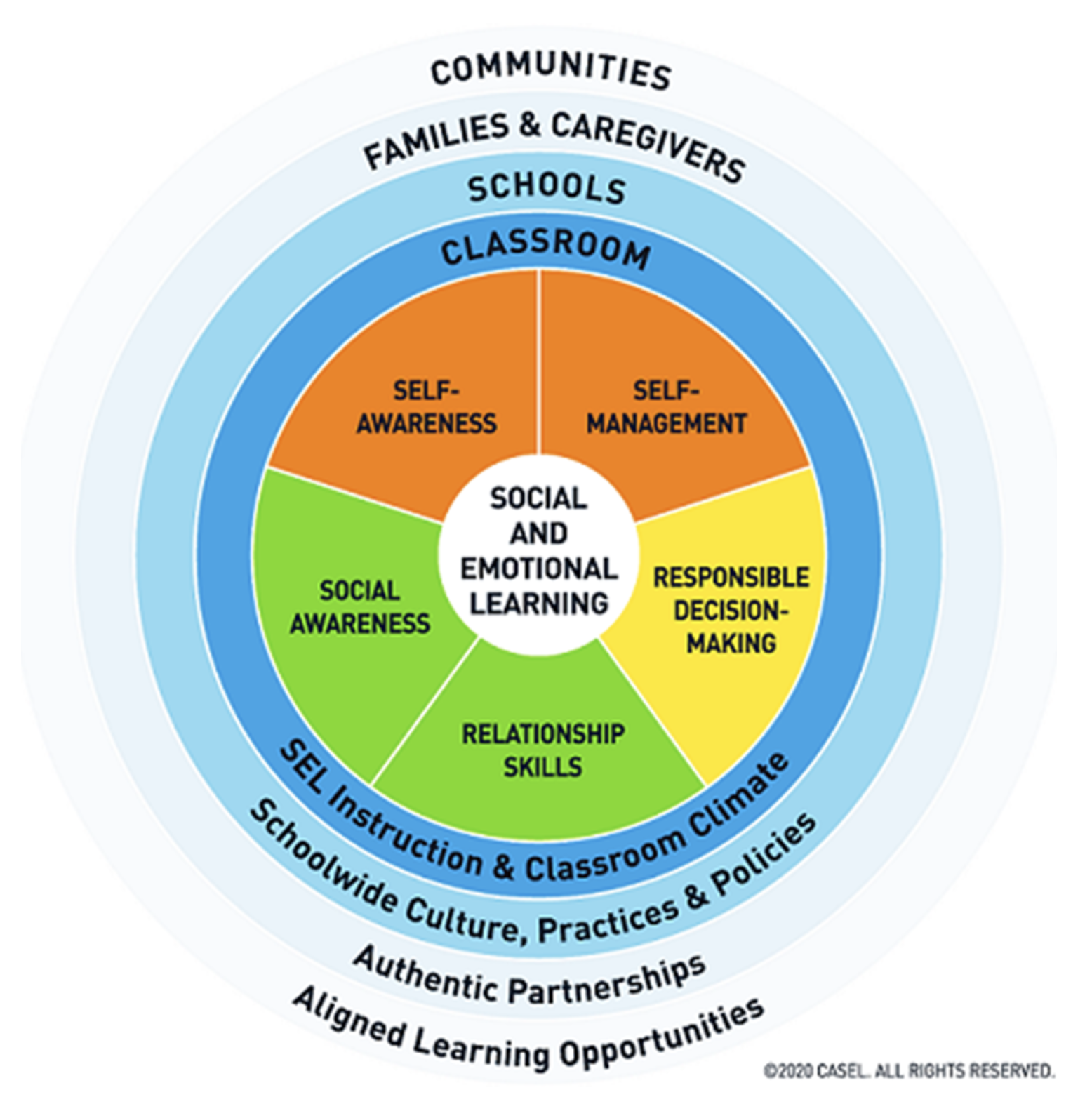
The CASEL 5 Core Skills
The CASEL 5 addresses five broad and interrelated areas of competence and highlights examples for each: self-awareness, self-management, social awareness, relationship skills, and responsible decision-making. The CASEL 5 can be taught and applied at various developmental stages from childhood to adulthood and across cultural contexts.
Self-Management: Managing emotions and behaviors to achieve one's goals
Self-Awareness: Recognizing one's emotions and values as well as one's strengths and challenges
Social Awareness: Showing understanding and empathy for others
Responsible Decision-Making: Making ethical constructive choices about personal and social behavior
Relationship Skills: Forming positive relationships, working in teams, dealing effectively with conflict
